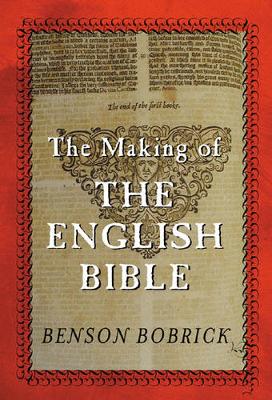The King James Bible, the most famous English-language Bible, was the culmination of centuries of work by various translators, most notably John Wycliffe in the fifteenth century and William Tyndale in the sixteenth. In this enthralling account of the tumultuous politics surrounding the translation of the Bible into vernacular languages, Benson Bobrick, a professor from Columbia University, shows how the achievement of Tyndale and other translators had a permanent influence on the English-speaking world. As the historian Macaulay wrote of the King James version: 'If everything else in our language should perish, it alone would suffice to show the extent of its beauty and power.' But the King James scholars relied on Wycliffe and particularly Tyndale, polishing their translations and giving us phrases that are still part of the English language: - 'eat, drink and be merry', 'the powers that be', 'the salt of the earth', 'let there be light', 'and the truth shall make you free', 'the spirit is willing, but the flesh is weak', 'the root of all evil'.,
'fight the good fight', 'a thorn in the flesh', 'labour of love', 'the fat of the land', 'the sweat of the brow', 'to cast pearls before swine' 'am I my brother's keeper?' among them. As Benson Bobrick shows translating the Bible had been a chancy business: caught in the political dispute between Henry VIII and the Pope, Tyndale was imprisoned and executed as a heretic. Henry and later Elizabeth embraced the English Bible. Free to interpret God's word according to their own understanding rather than listen to priests read from the Latin, allowed, Bobrick argues, revolutionary concepts of liberty and free that led to the English Civil War and the overthrow of Charles I.
- ISBN10 0297607723
- ISBN13 9780297607724
- Publish Date 11 October 2001
- Publish Status Out of Print
- Out of Print 8 November 2006
- Publish Country GB
- Publisher Orion Publishing Co
- Imprint Weidenfeld & Nicolson
- Format Hardcover
- Pages 388
- Language English
